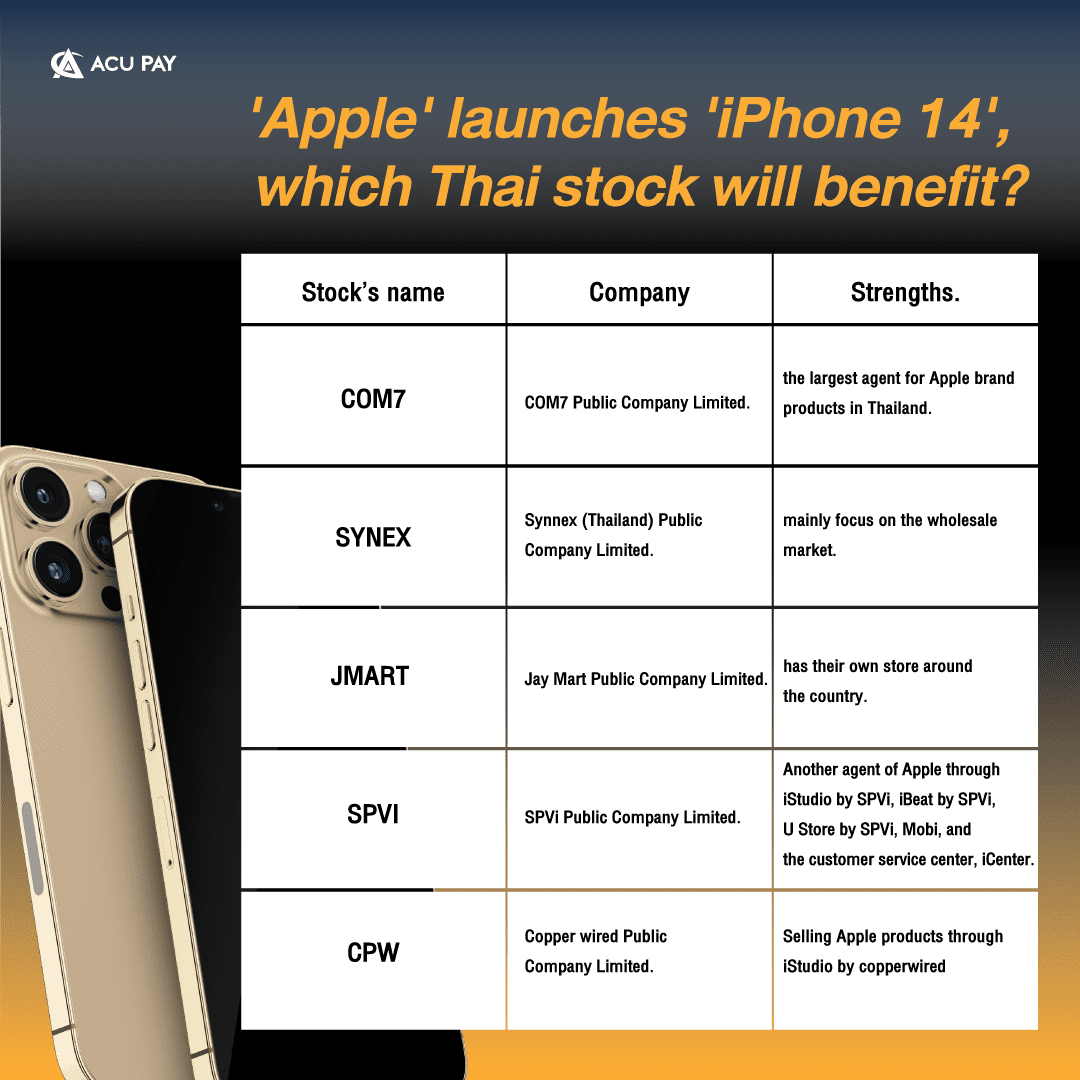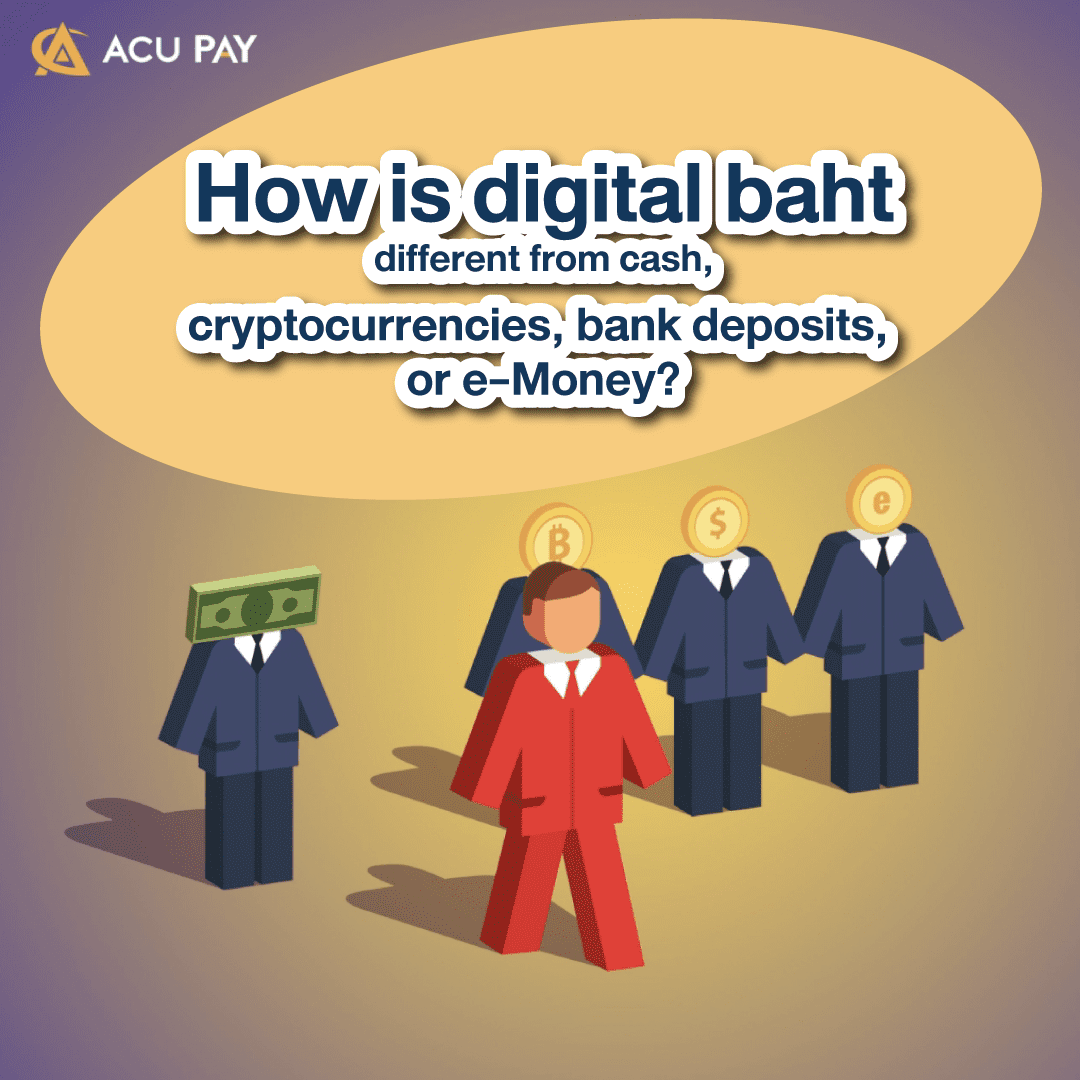
At present, we can see that our world has come to know about digital currencies or cryptocurrencies. It is a currency that has no centralized control, and most currencies are unstable. This makes it easy to fluctuate, which has both advantages and disadvantages Thailand itself is developing a digital currency that will use the baht as an asset to evaluate the value of the digital baht for stability and national development.

Retail central bank digital currency: retail CBDC or the Thai baht in digital form. by emphasizing that it will be issued in a form similar to digital cash, i.e., with no interest. and relying on intermediaries to exchange or distribute money to the public. And there will be conditions not to exchange deposits into digital baht in large quantities and too quickly. In order not to affect the mobilization of deposits and lending of the financial institution system. The Bank of Thailand sees that the digital baht will add to the existing payment options, not replace them, making any choice disappear.
How is “digital baht” different from “cash” (banknotes and coins)? Usually, when using cash, many people have to withdraw their deposits to count them and then spend them. which is different from “Digital baht” which cannot be touched. But it is money issued by the central bank that can be used to pay off debts legally and is backed by government assets like cash. Before it can be used, people have to exchange their deposits or cash in their digital wallets. For people who don’t have smartphones, the internet, or deposit accounts with financial institutions, it will also be accessible, for example, through a card that can be used to tap to receive payments.
The “digital baht” is different from the cryptocurrencies created by the private sector, has very volatile value, and has no legal support except in some countries, such as El Salvador, which announced in June that it was the first country to accept bitcoin as a legal settlement currency. This is partly because people in the country have widely used US dollars instead of the local currency for a long time (dollarization). But people later started protesting because of the volatility of Bitcoin’s value, which made them unwilling to accept bitcoin payments as required by law. Moreover, “digital baht” differs from some cryptocurrencies in that it has a value-fixing mechanism against the base currency or another asset to make the price less volatile or stablecoins. The holder may not be sure that the fixed asset exists and who will certify it.
“Digital baht” is different from money transfers through deposit accounts on smartphone apps and internet banking. How can Thai people use it conveniently and without having to pay transfer fees? For those who like to use cash because they can spend it directly, keep it safe, no risk, high liquidity. The addition of digital baht will help reduce contact, reduce travel costs for depositing, withdrawing, and keeping cash, and increase cash efficiency with new financial technologies. It’s like building a new road that anyone can use or can continue to add innovations in financial services in the future, making digital cash transactions run fast and without having to pay fees if general spending is not very high. It is another option that does not require transferring deposits through the financial institution system, which may have some time restrictions during the times that people use it a lot or can be used only for the customers of that financial institution.
How is “digital baht” different from electronic money (e-money) that is currently used in many forms? e-money is electronic money issued by financial institutions and non-bank operators under the payment system law. Service providers will issue e-money to users who top up the money to pay for goods and services on specific networks that accept e-money, which may be in the form of cards such as electric train cards, top-up cards, or in service provider networks such as TrueMoney, Rabbit, LINE Pay, ShopeePay, GrabPay. The amount of money in electronic wallets is equal to the amount of the top-up money we added, unlike the “digital baht” issued by the central bank that can be used as a payment for a wide range of things, enabling people to use it more thoroughly.
It can be seen that the development of The “digital baht” in Thailand is another important step in upgrading the country’s payment infrastructure and preparing the country for the digital economy and innovations. Private financial service providers encourage the payment infrastructure supporting the digital baht and taking a cashless society to the next level.